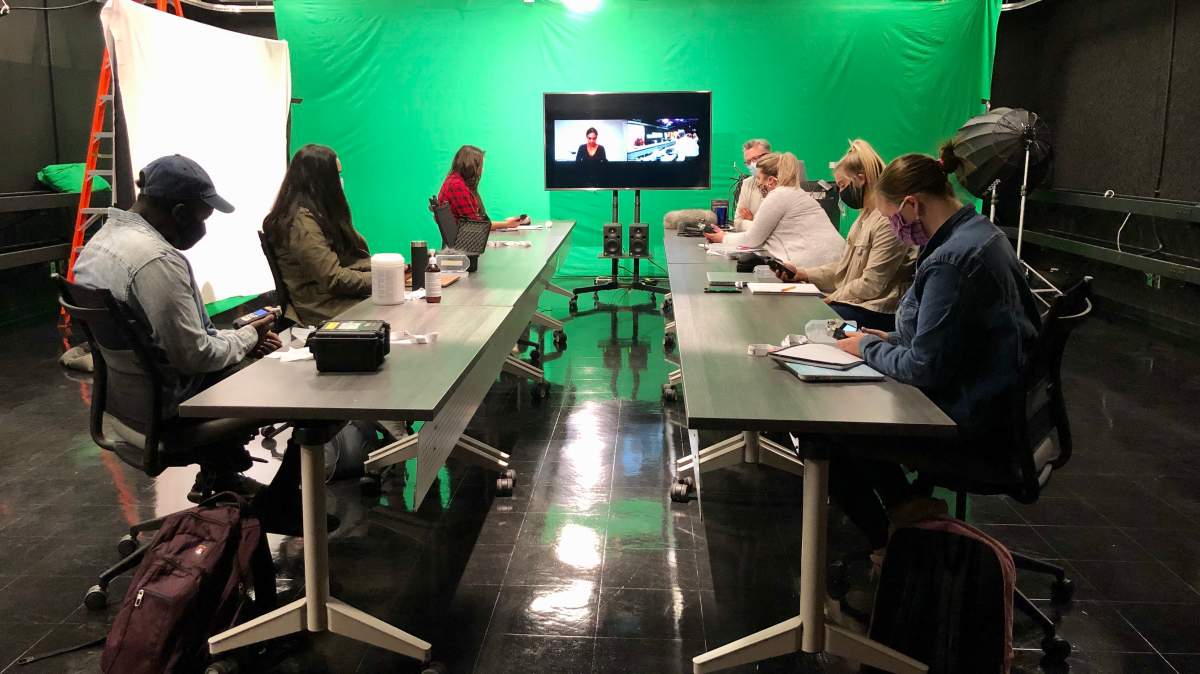Students and faculty at the University of Regina are getting acquainted with the realities of post-secondary education during a pandemic.

Due to COVID-19 restrictions, the University of Regina Students’ Union (URSU) kicked off its welcome week Wednesday with a drive-through breakfast in a nearby parking lot off-campus.
URSU president Gurjinder Lehal said most of the first-week festivities are virtual or distanced, culminating with a drive-in movie night Friday outside Conexus Arts Centre.
“With no access to the campus … we can’t make that many big events, but we try,” Lehal said, adding that social interaction is one of the key concerns during the physically-distant school year.
“To keep that mental health strong, we need to interact with students, we need to socialize them with some (events).”
Returning U of R student Olivia Lawrence is starting her first year at the journalism school.
She said the biggest difference, other than online learning, is the physical distance from others in her hands-on program.
“You meet them online, but it definitely is different than in person. So I’m really glad I have the lab to meet some of the students,” Lawrence said.
The journalism school has approval to continue modified in-person labs on campus.

Get daily National news
“For me, as a lab instructor who teaches technology, it’s really important for students to put their hands on it and have an instructor show them — at a safe distance — how it all works and why it works,” said Layton Burton, who instructed the first broadcast lab on Wednesday.
Burton’s class of 18 students is now split into two smaller groups — one in the morning, one in the afternoon. Everyone in studio must wear a mask and adhere to physical distancing as much as possible.
Aside from the lab, all other journalism instruction is taking place online.
“As I said to my students this morning, it’s going to be a little bumpy because we haven’t done it before,” Burton said.
“We mocked it up before, but to actually have the students in class and then virtually – I have one student who is in Edmonton – it’s a little bit different because it’s real-time.”
Since the novel coronavirus pandemic abruptly changed campus life in March, faculty members have braced for a new way of teaching.
Randy Linton is an instructor of accounting at the Paul J. Hill School of Business at the University of Regina.
He will be teaching students in real-time via Zoom with a customized setup to enhance his lessons.
“Instead of just teaching remotely and creating an online course, I wanted to create the exact same experience a student has in the classroom,” he said.
To help with that, Linton bought a large whiteboard for his office. Using two different Zoom accounts, he works through examples for students while also sharing a power-point of the lesson.
“During a Zoom class, students will actually see me teaching on a white board, my Powerpoint slides and a combination of both at the same time,” he said.
“Whenever a student goes to speak, their zoom box will pop up and I can interact one on one with them in a question.”
While that’s the reality for some students, others are looking at a full term of asynchronous learning.
“The contents all online, you read the textbook and have scheduled mid-terms, finals and papers,” said Emily Cann, a psychology major at the U of R.
Cann said while that style of learning can be beneficial for students with a part-time job, it can also make it harder to interact with instructors.
URSU told Global News one of the biggest concerns students have at this time is the quality of education, given the differences in delivering online learning.
The students’ union president said they are urging the university to consider allowing some students back on campus for winter term with physical-distance and masking policies in place.

Questions about COVID-19? Here are some things you need to know:
Symptoms can include fever, cough and difficulty breathing — very similar to a cold or flu. Some people can develop a more severe illness. People most at risk of this include older adults and people with severe chronic medical conditions like heart, lung or kidney disease. If you develop symptoms, contact public health authorities.
To prevent the virus from spreading, experts recommend frequent handwashing and coughing into your sleeve. They also recommend minimizing contact with others, staying home as much as possible and maintaining a distance of two metres from other people if you go out. In situations where you can’t keep a safe distance from others, public health officials recommend the use of a non-medical face mask or covering to prevent spreading the respiratory droplets that can carry the virus. In some provinces and municipalities across the country, masks or face coverings are now mandatory in indoor public spaces.
For full COVID-19 coverage from Global News, click here.










Comments